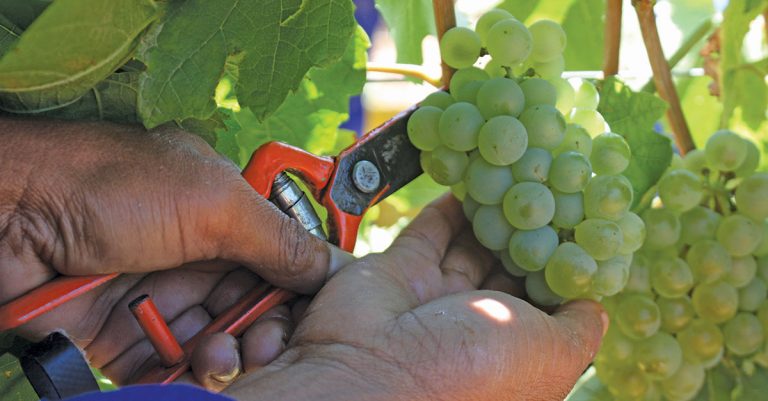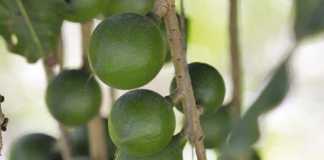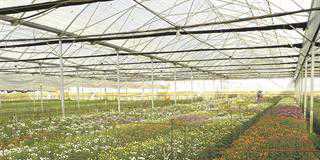
Photo: FW Archive
The capabilities and skills of individuals and populations, known as human capital, is a key driver of economic prosperity and productivity, according to the World Economic Forum’s ‘Global Competitiveness Report 2020’.
The report notes that South Africa is one of several countries to have seen a downward trend in the adequacy of graduates’ skill sets in recent years.
“As a result, investing in human resource development is critical for the long-term sustainability and profitability of the agriculture industry,” says Jacomien de Klerk, manager of the Citrus Academy.
A non-profit organisation, the academy was established by the Citrus Growers’ Association of Southern Africa in 2005 to address the skills shortages within the industry.
A dearth of skills
South Africa’s agriculture sector faces a variety of skills shortages. In the wool industry, the most crucial skills include sheep shearing, wool handling, and predation management.
More recently, according to Leon de Beer, general manager of the National Wool Growers’ Association (NWGA), there has also been a growing demand for suitably qualified people who can audit farms to determine whether they meet sustainable production standards.
The wine industry, too, suffers from skills shortages. According to Kachné Ross, Winetech learning and development manager, the industry has found that there is a particular shortage of basic literacy and numeracy skills, as well as a lack of communication, technical and leadership skills at a higher level.
Lebogang Sethusa, labour specialist at Agri SA, points out that the number of pupils enrolling for subjects such as mathematics, physical science, agricultural science, agricultural management practice and agricultural technology has been on the decline for the past few years.
“These subjects are all critical for young people wanting to pursue a career in agriculture. This decline has had a domino effect on the shortage of skills in areas such as agricultural engineering, agricultural sciences, and environmental and climate change research sciences. [This affects the availability of] researchers in disaster management, plant pathologists, entomologists, plant breeders and biotechnicians,” she says.
Sethusa adds that training programmes can provide people with the skills to become hand and machine shearers, as well as welders, fitters and turners, boilermakers, and petrol and diesel mechanics.
According to De Klerk, surveys have shown that middle and upper production management positions on citrus farms and packhouses are the most difficult to fill.
“With these occupations, workplace learning and experience are more important than a qualification. Most workplaces are not particularly geared to being learning spaces, which is understandable when you take into account the pressure that businesses are under to be profitable,” explains De Klerk.
She adds that there has been a growing demand in fields such as engineering, in particular industrial engineering, over the past few years due to production becoming more process-oriented, both on farms and in packhouses.
Upskilling the labour force
De Klerk says that since its founding, the Citrus Academy has invested almost R26 million in human resource development through its bursary fund.
“More than 900 bursaries have been awarded to about 320 individuals. Of those who’ve graduated, approximately one-third are working in the citrus industry today, and another third is working in the rest of the fruit industry, in academia or for government departments and agencies. We see this as a great return for the industry.”
Skills development is no less important in South Africa’s wool industry, particularly as more than 90% of the national wool clip is exported annually.
“Training is imperative to maintain the high standard of the quality of the South African clip that’s already well recognised on the international market,” explains De Beer.
The NWGA is an accredited training provider with the Agricultural Sector Education Training Authority (AgriSETA).
“We provide training to emerging and communal wool sheep producers in basic production, including breeding and selection, basic flock health, basic flock nutrition, shearing shed management, and basic financial management. Training has capacitated them to market 5,88 million kilograms of wool valued at R289 million through the formal market during 2019/20,” says De Beer.
He adds that the NWGA also provides sheep shearing training at various skill levels, as well as wool classing to new recruits up to experienced shearers and wool classers.
“This training supports a R5 billion [a year] industry and improves skills and knowledge of all wool producers, [which enables them] to produce a clip that complies with sustainable standards as required by international markets.”
Training and development have long been a priority for the wine industry. But in 2017, the industry sought to formalise this by launching a learning and development strategy.
According to Ross, the aim is to create systems that promote continual growth opportunities and align training with industry needs and prioritise and allocate funding.
Vinpro has hosted an annual series of vineyard training courses since 2012. Close to 1 500 people were trained in 2018, and more than 1 000 in 2019. (Last year, because of the COVID- 19 pandemic, the courses were reduced to a much-curtailed half-day practical format.)
In addition, Vinpro has launched a free wine tourism toolkit to help wineries develop their wine tourism businesses.
Investing in the youth
Astrid Arendse, human resources officer of deciduous fruit commodity organisation Hortgro, says that primary agriculture is an essential service that provides career opportunities throughout the value chain.
“It’s important that we invest in training and development of the youth in order to ensure that our industry has access to the best-qualified individuals. The Hortgro bursary scheme provides support in discovering and training the best minds and developing a strong labour force,” she says.
By 2019, Hortgro had spent R26,5 million on bursaries for 485 students over seven years. In addition, Hortgro also has a mentorship programme that currently comprises 28 interns who have been placed with farmers and warehouses.
“These are students who need to gain practical experience as part of their qualification. The internship covers the practical skills needed to get the physical work done, while mentorship focuses on empowering the students with skills to handle life better, as well as developing their job potential,” explains Arendse.
Agri SA, in partnership with the Sasol Trust, has developed an in-house internship programme for three interns each year, during which they are exposed to specialist areas that affect the agriculture sector, such as land, agricultural economics and disaster management.
In 2015, Agri SA, in partnership with Agri SA Enterprises, also established the Agri Enterprises Training and Development Academy with the sole purpose of providing industry-specific training in scarce skills within the sector and value chain.
“We invest in the training and mentoring of young people for them to take advantage of jobs opportunities in the sector,” says Sethusa. “With over 60% of the African population being 25 years old or younger, young people in rural areas need to be given access to capacity-building opportunities.”
Challenges
De Klerk stresses that skills development is no easy task and the shortage of quality formal education at all levels is a major difficulty in many workplaces.
“While challenges around numeracy and literacy can be traced to poor-quality basic education, the shortage of quality post-school education means many graduates are not work-ready and don’t have the knowledge and skills they need to meet the demands of the occupations for which they’re supposed to be qualified.”
In addition to this, the functioning of AgriSETA and its governing body, the Sector Education and Training Authority (SETA) remains a major problem.
“Last year, as was the case with many government organisations, many SETA employees started working from home some days of the week. Unfortunately, [due to poor resources and connectivity], it resulted in a significant drop in the productivity of the SETAs, with major delays in approval and funding processes. This has further hamstrung workplace learning.”
For De Beer, a lack of sufficient funding and resources are the main challenges for the wool industry. “Shearer training is limited to the availability of sheep for practical shearer training, and the availability of wool fleece is also a restriction on wool-classing training. There are also insufficient funds to employ enough qualified trainers and shearing instructors.”
Ross says that some skills development facilitators fail to understand the benefits of submitting workplace skills plans and annual training reports to SETAs to identify scarce skills and create funding and training opportunities. For Sethusa, the foremost difficulty in skills development is making a career in agriculture attractive to the youth.
“We see a challenge in attracting and retaining young people in rural areas. This extends to the location of our agricultural colleges and their affordability. This is where we as an industry can take hands in supporting skills development.”
Email Kachné Ross at [email protected], Lebogang Sethusa at [email protected], Jacomien de Klerk at [email protected], Astrid Arendse at [email protected], or Leon de Beer at [email protected].













